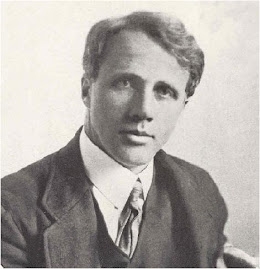
"Come In"
As I came to the edge of the woods,
As I came to the edge of the woods,
Thrush music -- hark!
Now if it was dusk outside,
Inside it was dark.
Too dark in the woods for a bird
By sleight of wing
To better its perch for the night,
Though it still could sing.
The last of the light of the sun
That had died in the west
Still lived for one song more
In a thrush's breast.
Far in the pillared dark
Thrush music went --
Almost like a call to come in
To the dark and lament.
But no, I was out for stars;
I would not come in.
I meant not even if asked;
And I hadn't been.
In this poem, Robert Frost is comparing the deepest part of the woods to the obscure parts of life, which include depression, the thought of suicide and death. He also compares the edge of the woods and what is outside of these with the light, sunny and positive part of everyone’s life, as well as life itself. The thrush, which is a bird, sings as if to invite the speaker into the woods, meaning his “darker side” (line 15). The speaker’s life isn’t happy, and that is why he compares it to the sunset, which is the time of day when sunlight goes away, leaving dusk. He doesn’t feel well with himself and he is listening to the bird, almost as if it was urging him to come in (line 16). He chooses, though, to stay outside, because at the moment he sees the last ray of sunlight (line 9), he thinks of it as new hope in his life. He then stays to find the stars (line 17), which are powerful lights in the night sky that represent life and hope. Frost uses personification in the third stanza, when he states that “The last of the light of the sun/ That had died in the west/ Still lived for one song more/ In a thrush’s breast” (lines 9-12), because sunlight does not live nor die, it’s always there, just that we don’t always see it because the Earth is in constant rotation.
For more analysis on this poem, please visit the links below:
http://www.eliteskills.com/c/13217
http://www.americanpoems.com/poets/robertfrost/690/comments.
